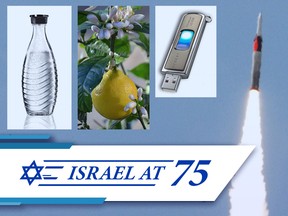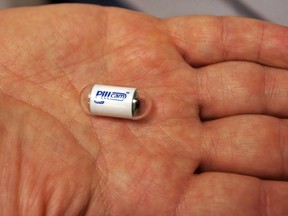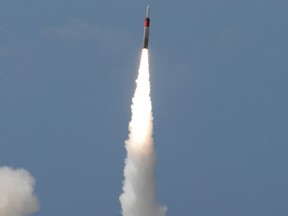The Start-Up Nation
"Seventy-Five years ago, on the fifth day of Iyar on the Hebrew lunar calendar, which falls on April 26 this year, on the eve of Great Britain pulling out of Palestine, the region's Jewish community declared 'the establishment of a Jewish state in Eretz-Israel, to be known as the State of Israel'.""The Zionist movement was formed to re-establish the ancient Jewish homeland in Judaea, as a refuge for a people who faced centuries of persecution. At the end of the 19th century, the World Zionist Organization began building the institutions that would form the basis of an eventual state.""Following the Holocaust, Zionism came to be seen not just as a dream, but as an existential imperative for a people who had barely escaped total annihilation."
 |
| From ubiquitous carbonated water to drip irrigation for growing crops in the desert, the USB key and anti-missile systems, Israel has a talent for creating things the world wants. |
Modern-day
Israel has distinguished itself as a innovative hub of human
creativity, a vast beehive of technological advances as well as an
agricultural focus on the art of the possible. In an arid landscape
where water is always in short supply, its lack through normal means and
natural resources has been rectified by coercing nature to cooperate
with enterprising methods in resupply to huge advantage not only to
Israel but in sharing its remedies to the rest of the water-scarce
world.
Ranking
highest in the world for per-capita startups, Israel's rate of tech
investment has registered as much as 28 times greater than the United
States. In the 1980s, the USB stick was invented in Israel. Israeli
agricultural scientists popularized the cherry tomato. Smartphones with
Waze operate with Israeli code. The brilliant inventive power of Israeli
scientists has led to all manner of inventions uniquely Israeli which
become technologies with global spread.
Translation
machines represent a particular Israeli tech inspiration possibly
reflective of the many langues aside from the country's national Hebrew,
being spoken. Babylon, one of the first software programs offering
instantaneous translation of documents and web pages was the work of an
Israeli company in 1997. In the 1990s Wizcom Technologies debuted pens
able to scan words and translate them to an LCD screen. OrCam Read, a
hand-held device, can scan printed pages and read them aloud.
One
of the country's first major technical challenges to face Israeli
scientists was how to maximize scarce water resources. Israeli geography
is largely desert; almost all sources of surface water arrive through
neighbouring territories hostile to Israel. Israel now produces 20
percent more water than required internally, with three major
initiatives.
Huge
desalination plants to repurpose sea water into potable water; a
centralized water management system repurposing wastewater, replenishes
aquifers and moves awater through a complex system of canals, pipes and
reservoirs. Irrigation, the third, a method of agriculture developed in
the 1950s where water crops use targeted drips instead of sprinklers.
 |
| The Pillcam ESO is used to photograph a patient’s esophagus. |
Rewalk,
a robotic exoskeleton enabling paraplegics to walk, grabbed world
attention to gawk at Israeli medical technology. Israeli researchers
invented tiny cameras and sensors to be introduced into the human body;
disposable 'cameras'-in-a-pill, the PillCam that can be swallowed to
allow doctors to view the state of a body's internal organs. An off
shoot of Israel's security tech sector. Surveillance cameras, drones and
spy cameras, part of Israeli defence technology.
ENvizion
Medical based in Tel Aviv created a "smart" feeding tube to help chart
its path down the esophagus, meant to prevent health-care providers from
accidentally sending the tube into the lungs. Another, a flexible and
high-resolution Aer-O-Scope colonoscope sends a tube to scope around the
human colon.
Israel's
never-ending concern over hostile neighbours scheming to destroy it by
incremental attacks and lethal violence required technology capable of
destroying incoming missiles. The country's military poses an advanced
catalogue of technologies designed to shoot down missiles; Iron Dome the
most famous among them. About 90 percent of incoming rockets and
artillery shells are blocked from landing through the latticework of
sensors and interceptor missiles along Israel's border.
 |
| Israel has an advanced catalogue of technologies designed to shoot down missiles from hostile neighbours. |
A qick reaction missile -- Arrow 3 -- "designed to intercept and destroy the newest, longer-range threats, especially those carrying weapons of mass destruction"
has been developed. A tiny anti-missile system to be attached to tanks
and armoured vehicles is the Trophy countermeasure system, designed to
detect an incoming anti-tank missile and disarm it at the last second
with a burst of small projectiles.
Labels: Agricultural Advances, Desalinization, Innovation, Israel, Medical Advances, Security, Technology

<< Home